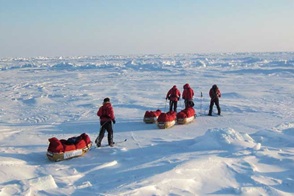
China’s growing engagement in the Arctic has sparked debate over whether it is performing as a status quoist actor which is operating within the established institutions and legal norms or as a revisionist power actively seeking to reshape Arctic governance to serve its national interest. This paper explores China’s diplomacy, investments, and strategic behaviour up to 2025 in the Arctic to assess the extent to which China upholds or challenges the Arctic regional status quo. Drawing on international relations theory, a review of literature, policy documents and data on Chinese Arctic activities the paper finds a nuanced picture. On one hand, China has largely worked within the existing framework — China has obtained the observer status of the Arctic Council accepting the Arctic states’ rules, participates in treaties like the Central Arctic fisheries moratorium, and emphasises the respect for sovereignty and international law. On the other hand, Chinese actions and discourses suggest revisionist leanings — China declares itself a “Near-Arctic State”, advocates the affairs of the Arctic “extends to all mankind,” and pursues initiatives like the Polar Silk Road to broaden its influence. Quantitative indicators, from shipping volumes on Arctic routes to numbers of projects and ice-breakers funded by China, illustrate Beijing’s expanding Arctic footprint. The findings indicate that China is neither a pure status quoist power nor an outright revisionist actor in the Arctic. Rather China is a selective challenger. Beijing avoided direct confrontations and abided by the core legal regimes while simultaneously seeking to subtly reform institutions and norms to secure a greater voice in the Arctic governance. This balanced strategy has significant implications for global governance beyond the Arctic, suggesting that what established, norm-shaping status-quo powers perceive as ‘disruptive revisionism’ on China’s part may be mitigated by accommodating rising powers within regional regimes. This paper contributes to understanding how China’s Arctic behaviour aligns with theoretical expectations and offers insights into managing great-power interest in the rapidly changing Arctic geo-political landscape.
© 2019 ICS All rights reserved.
Powered by Matrix Nodes